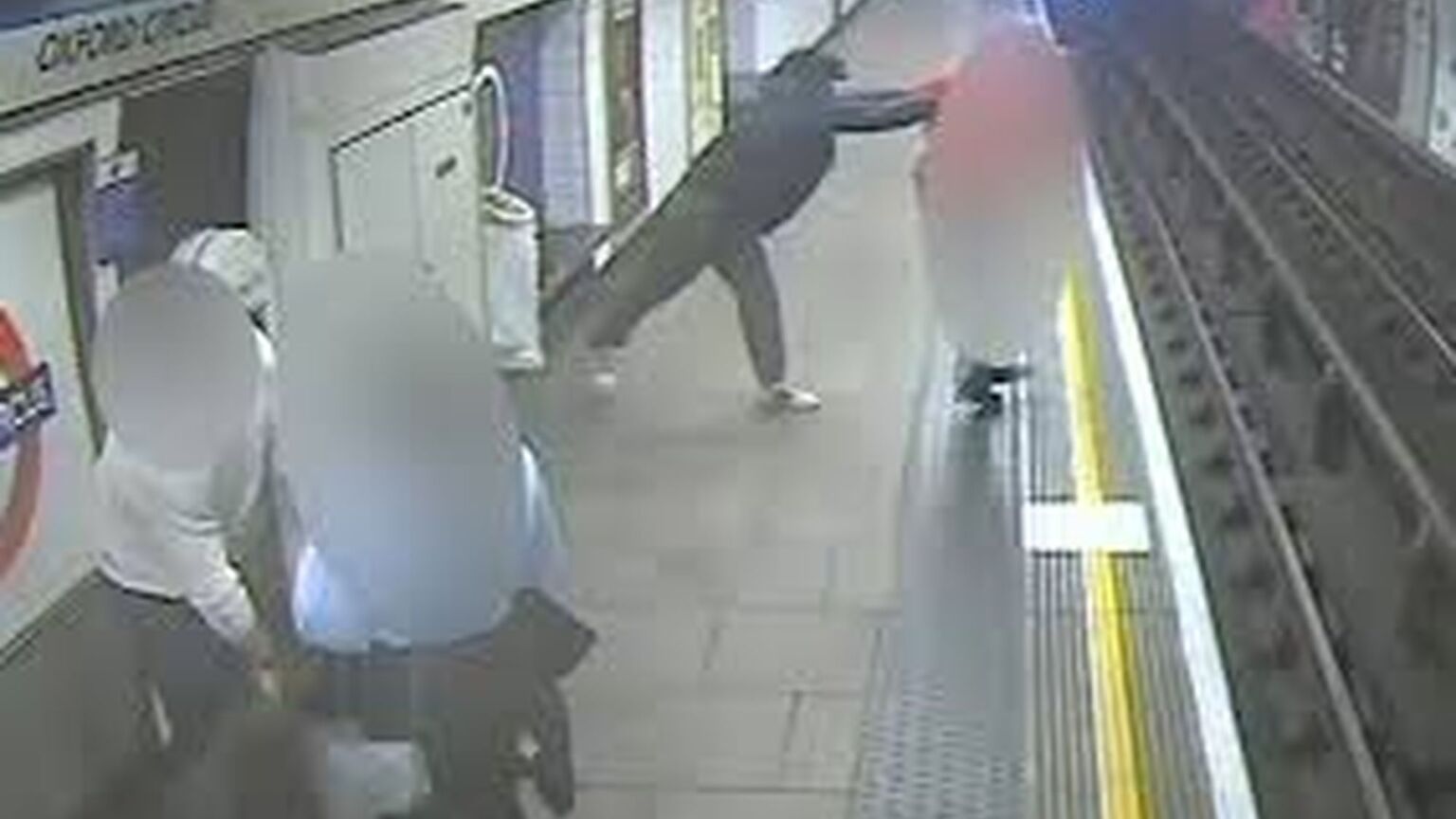What does it take to get a dangerous criminal deported?
Serial offenders who have no right to be in Britain are being left to run amok.

Want to read spiked ad-free? Become a spiked supporter.
It seems that not a week goes by without a new scandal exposing the dysfunction of the UK’s migration system.
The latest case to come to light is that of Brwa Shorsh. The 24-year-old Kurdish migrant pushed 61-year-old Tadeusz Potoczek into the path of an oncoming Tube train at Oxford Circus station earlier this year. Apparently, it was an act of ‘revenge’ for receiving what Shorsh interpreted as a ‘dirty look’. Thankfully, Potoczek was pulled up to safety by an alert member of the public and was unharmed.
Shorsh was convicted of attempted murder last week and will be sentenced in September. During the course of his trial, it emerged that he is a convicted criminal with a long list of past offences. A previous immigration-tribunal hearing was told that he had shown a ‘pattern of regular serious offending’. In fact, he held a dozen convictions for a total of 21 offences, including assaults, anti-social behaviour and outraging public decency. At the time of the attack at Oxford Circus station, Shorsh was appealing against his planned deportation.
With this deeply troubling record of repeated criminality, how on Earth was Shorsh still in the UK? This grave institutional and legal failure very nearly lead to a member of the public being killed or at least seriously injured.
A House of Commons research briefing earlier this month made clear that the UK home secretary has a legal duty to deport foreign criminals. This applies to non-British, non-Irish nationals sentenced to at least 12 months’ imprisonment for a criminal offence in the UK (with certain exemptions). This duty is outlined in Section 32 of the UK Borders Act 2007. There is also ‘ministerial discretion’ to deport foreign nationals if it is ‘conducive to the public good’ (as stated in Section 3 of the Immigration Act 1971). The problem is, while a 12-month custodial sentence should trigger automatic deportation, foreign criminals can and do tend to appeal this under our human-rights laws.
Astonishingly, Shorsh’s case is far from unique. Just this week a similar trial reached its conclusion. In 2022, Eritrean asylum seeker Esayas Neguse stabbed his own immigration lawyer, who thankfully survived, in the chest and hand. Neguse had just been released early from what should have been a 12-month prison stint, which ought to have triggered his immediate deportation. He had already racked up 11 convictions by the time of the knife attack, and was also facing another assault charge. He has now been sentenced to 11 years in prison.
And who could forget Abdul Ezedi, the Afghan asylum seeker who attacked a mother and her two young children with a corrosive substance earlier this year? Ezedi had come to the UK illegally in 2016, but was denied asylum twice. He then went on to commit two sexual offences in the UK. But he was allowed to stay anyway, owing to a bogus conversion to Christianity, leaving him free to inflict life-changing injuries on an innocent young family. He has since taken his own life.
Before Ezedi, there was Iraqi-born Emad al-Swealmeen. His asylum claims were rejected twice and he had reportedly served time in a Middle Eastern prison for a serious sexual assault. He would go on to detonate a homemade bomb outside Liverpool Women’s Hospital in 2021, killing himself and injuring three others. Why did the authorities not attempt to remove this obviously dangerous man, who had no right to be in the UK, from the country?
The UK needs to start prioritising the security of law-abiding British citizens over the rights of dangerous foreign criminals. This probably cannot be done without serious reform of our human-rights laws. We may also need a proper reckoning with the European Court of Human Rights (ECHR), which allows foreign criminals to appeal their deportations on the flimsiest of grounds.
Ultimately, this is a matter of political will. We can certainly criticise the ECHR, woolly judges, liberal immigration lawyers, naive refugee charities and even the hyper-woke Church of England for the roles they sometimes play in preventing dangerous criminals from being deported. But it is our elected representatives who need to be held to account. For too long, the British political classes have failed to take robust action. They have demonstrated a shocking indifference towards public safety.
The elite consensus on migration and asylum has failed the British people time and again. Will the new Labour government make the necessary changes and do all it takes to keep us safe? I won’t hold my breath.
Rakib Ehsan is the author of Beyond Grievance: What the Left Gets Wrong about Ethnic Minorities, which is available to order on Amazon.
Picture by: YouTube.
Who funds spiked? You do
We are funded by you. And in this era of cancel culture and advertiser boycotts, we rely on your donations more than ever. Seventy per cent of our revenue comes from our readers’ donations – the vast majority giving just £5 per month. If you make a regular donation – of £5 a month or £50 a year – you can become a and enjoy:
–Ad-free reading
–Exclusive events
–Access to our comments section
It’s the best way to keep spiked going – and growing. Thank you!











Comments
Want to join the conversation?
Only spiked supporters and patrons, who donate regularly to us, can comment on our articles.